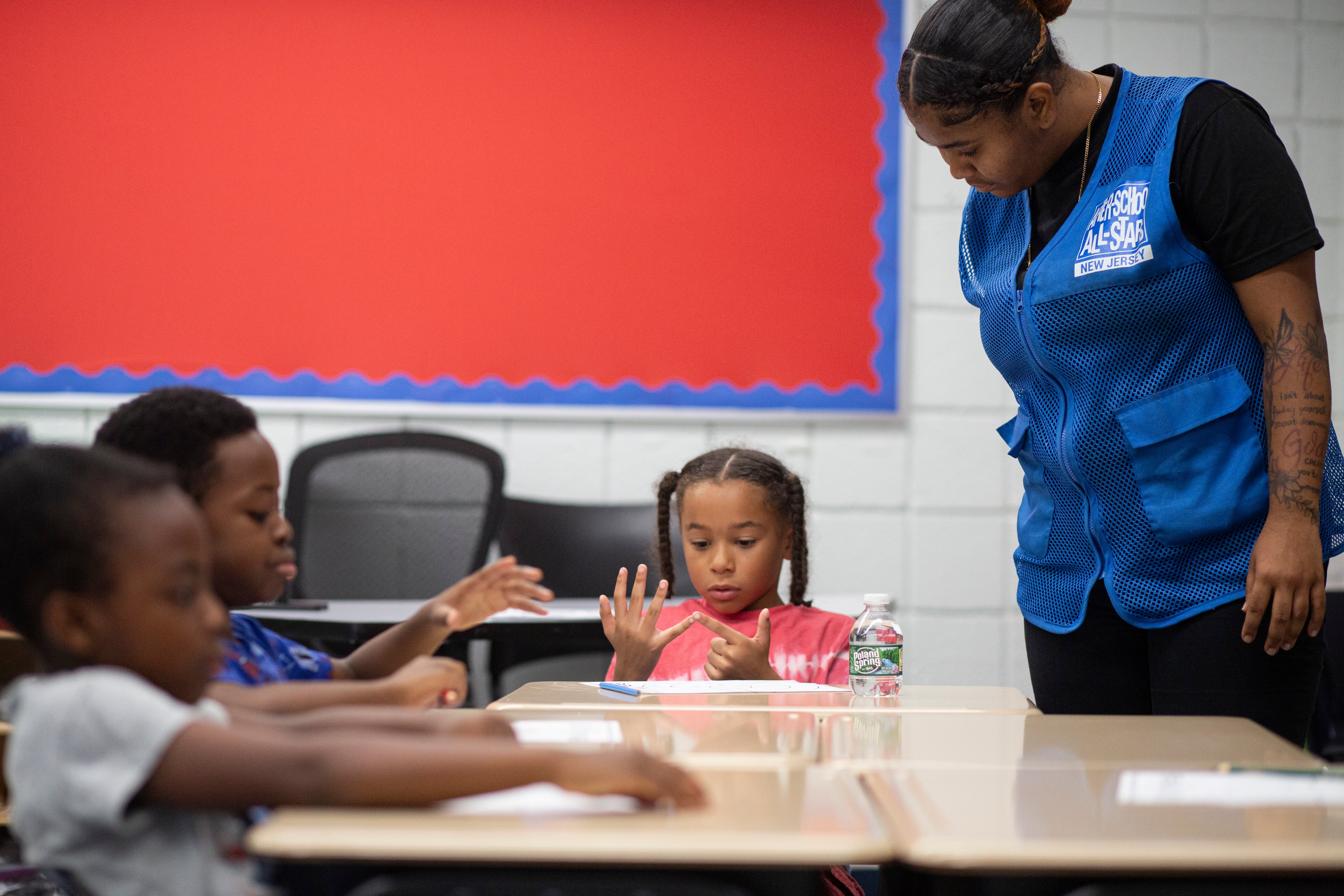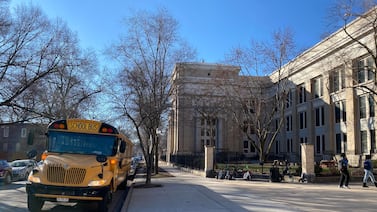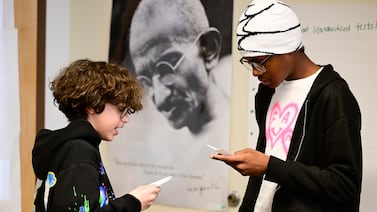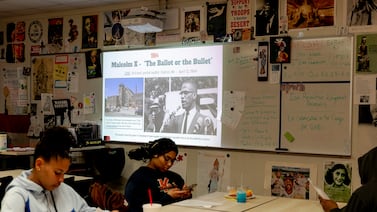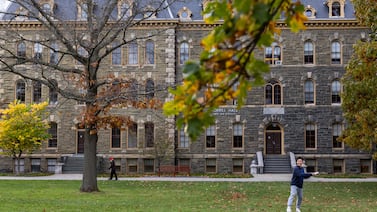Sign up for Chalkbeat Newark’s free newsletter to keep up with the city’s public school system.
With the end of the academic year quickly approaching, Newark Public Schools summer school applications are now open for students in elementary, middle, and high school.
This year, the district is hosting programs at 16 elementary schools, up from 14 last summer, and across 10 high schools.
Summer school is a combination of mandatory academic programs, which are based on attendance, grades, and state test scores, enrichment activities, and specialized programs for high schoolers. The district is also extending hours for enrichment programs – which are provided by teachers and community-based organizations – to 6 p.m. this year.
Similar to last year, summer school is about “moving kids forward” by helping students refine basic skills in math and reading and offering accelerated courses and internship programs for high schoolers, Superintendent Roger León said. District leaders expect a rise in English language learners and students with disabilities next fall and are providing programs this summer aimed at integrating new multilingual learners and supporting students with Individualized Education Programs over the break.
Registration for summer school began on March 28, and closes on May 15. Due to an earlier end to the school year, summer school will begin on June 27 and end on Aug. 2. Students enrolled in the district during this school year are eligible for summer school. Those who are Newark residents but were not enrolled in a public school this year are also eligible to attend depending on availability. Students who do not live in Newark cannot attend summer programs.
Last year, more than 10,000 Newark Public Schools students attended summer school, with more scattered throughout city charter schools. Federal COVID relief dollars helped expand summer programs last year, León said, and this fall, the district is facing the end of those funds.
What families can expect this summer
Not all school sites will be open for summer school, but students can report to the school closest to their home for programs, León said.
Parents of students who are required to attend Summer Achieve, the district’s mandatory summer school program, were notified last month and do not need to register for summer classes, district leaders said. Students wanting to enroll in enrichment programs such as summer sports camps and STEM academies must apply online by selecting the program through the district’s online application.
This year, summer school starts with breakfast at 8:30 a.m. and runs until 6 p.m. Summer Achieve sessions will be held between 9 a.m. and 1 p.m. with lunch at 12 p.m. Enrichment programs and activities through the district’s Summer Quest program will run from 1 p.m. to 6 p.m. with dinner included. Students can attend morning, afternoon, or sessions all day, district leaders said.
Elementary students who do not attend within the first three days of programs may lose their seats and, after the third unexcused absence, will be dismissed from their mandatory program, according to the district’s summer programs brochure. High schoolers enrolled in accelerated programs must attend every day to keep their spots.
At the beginning of this school year, Newark residents experienced sweltering conditions with some students learning in hot schools. Other students reported having little to no access to cold water in fountains at their school.
Stephanie McNeil is a per diem aide at 13th Avenue School who in past years, has worked for the district’s summer school program. This year, she’s decided not to apply for a summer position because of the hot conditions that make working in city schools “unbearable.”
“It is way too hot and it’s too hot for the kids to even learn in those types of conditions,” McNeil said.
Last month, the district said it will prioritize air conditioner installations at summer school sites before the start of programs in June. The district said it will also install them at other schools this summer, but has not said which ones.
In 2022, the Newark school board approved a nearly $5 million contract to purchase and install touchless water fountains districtwide, but the work is ongoing. More than 150 contactless water fountains need to be installed in schools and the district’s Office of Facilities Management says it plans to install them by May.
Programs for English language learners, students with disabilities
English language learners in kindergarten through 11th grade are eligible for the English-plus program meant to help students with their academic and language skills. The district says it focuses on developing reading, writing, listening, and speaking skills in English.
Multilingual students who have recently arrived in the country and will enter high school in the fall can also participate in the newcomers high school summer program. The program is offered at two high schools – Barringer High School in the North Ward and East Side High School in the East Ward – and intends to support students academically, socially, and culturally.
Students who live more than two and a half miles from either school and want to attend the program are eligible for bus tickets, according to the district.
Students with an Individualized Education Program receiving special education services may be eligible to enroll in the Extended School Year program. But the district’s office of special education says not all students with IEPs are eligible for summer services.
Child Study Team members will assess each student to determine their eligibility for the program by looking at a student’s risk of losing skills and knowledge during the summer break, according to the district’s office of special education. They will also look at how long it might take a student to regain those skills lost over the break. If a student is denied a spot in the extended school year program, a parent can appeal that decision.
Nyemia Young is the mother of Nasariah, a kindergartener at Salomé Ureña Elementary School who receives special education services from the district. For the last two summers, Young has enrolled her son in the district’s Extended School Year summer program but wasn’t happy with the care and attention he was getting. During Nasariah’s first time in summer school, he went to Rafael Hernandez School and was struggling with sensory issues that some teachers, Young said, were not prepared to deal with.
“They’re not even putting these kids with the appropriate staff,” Young added. “This year I might send him but I’m not all the way sure.”
The Extended School Year program is offered at nine elementary schools and three high schools, including the district’s specialized high schools: New Jersey Regional Day and John F. Kennedy School.
Who works during summer school?
León says the district is working to staff all its summer school sites. Current district teachers and staff members are eligible to apply for one of dozens of positions districtwide. Each school site is managed by a summer school principal and vice principal who are different from administrators who oversee schools throughout the regular year.
The district has posted positions for administrators, teachers, aides, nurses, and case managers, among others. With enrichment programs running until 6 p.m. this year, some positions require staff to stay for the full summer school day.
Educators like McNeil say it might be tough for teachers to commit to that schedule “on top of working during the regular school year.”
“It’s already difficult during the school year so, I don’t want to have a tough summer too,” McNeil added.
Jessie Gómez is a reporter for Chalkbeat Newark, covering public education in the city. Contact Jessie at jgomez@chalkbeat.org.


